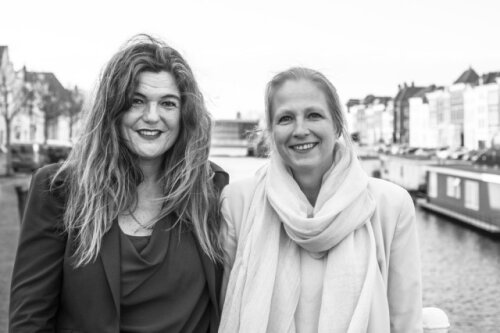Best Class Action Lawyers in Middelburg
Share your needs with us, get contacted by law firms.
Free. Takes 2 min.
List of the best lawyers in Middelburg, Netherlands
About Class Action Law in Middelburg, Netherlands
Class actions - often called collective actions or representative actions in the Netherlands - let a group of people bring a single case to seek compensation or other remedies for harm caused by the same defendant or the same type of conduct. In Middelburg you would use the Dutch collective-redress framework, which allows qualified entities or associations to litigate or settle mass damage claims on behalf of a group of affected persons. Cases may concern consumer goods, financial products, privacy breaches, environmental harm or other mass harms that affect many people in the same or similar way.
The Dutch system focuses on judicial oversight of collective settlements and on limiting fragmentation of similar claims. Courts in the Netherlands supervise whether a proposed settlement or representative action is fair and binding on identified group members. Middelburg is served by the local chamber of the district court that hears civil matters in the Zeeland region, so proceedings with local elements may be handled close to home.
Why You May Need a Lawyer
Class action matters are complex - they involve group membership rules, evidence across many claimants, procedural steps to obtain binding status for settlements, and interactions with qualified entities or litigation funders. You may need a lawyer if you are:
- Considering joining an existing representative action and want to know how it affects your individual rights and possible opt-out options.
- Seeking to be part of a coordinated claim where multiple claimants have similar losses from the same product, service or conduct.
- Affected by a product defect, false advertising, data breach, financial-product mis-selling or environmental damage and want to explore collective remedies because individual claims would be inefficient or costly.
- A group leader, NGO or foundation thinking of bringing a representative action and needing advice on qualification, court filings, evidence gathering and funding.
- Facing an offer of settlement and needing independent assessment of whether the proposed settlement is fair and binding, and how to protect your interests.
Local Laws Overview
Key aspects of the Dutch collective-redress framework that are particularly relevant in Middelburg include:
- Representative actions and collective settlements - The Dutch legal framework allows certain qualified entities to bring representative actions on behalf of groups of consumers or others who suffered similar harm. Courts oversee proposed collective settlements to determine whether they are fair, reasonable and binding.
- Qualified entities - Not every association or firm can start a representative action. The law identifies or recognises certain types of organisations as qualified entities for bringing collective claims or asking for injunctive measures on behalf of groups.
- Opt-in and opt-out mechanisms - Depending on the procedure and the court approval, collective settlements or judgments may bind group members who have explicitly joined (opt-in) or all identified members unless they opt out within a court-ordered period (opt-out).
- Court supervision and binding effect - Dutch courts play an active role in assessing settlements and will oversee notification, proof of membership procedures and the fairness of distribution plans for compensation. Once approved, a settlement or judgment can be binding for registered group members or, in some cases, for all people in the defined group.
- Evidence and proof - Collective claims require coordinated evidence gathering and may rely on representative proof, sampling, expert reports and consolidated documentation to establish liability and damages across the group.
- Costs, fees and funding - Class actions can be funded by claimants, qualified entities, third-party funders or contingency arrangements with law firms. Fee structures must comply with Dutch professional and ethical rules and the court will review cost allocations in settlement approvals.
- Jurisdiction and procedure - Civil claims are heard in Dutch civil courts with the district court responsible for first-instance matters. Middelburg is within the jurisdiction of the local chamber of the district court that handles Zeeland cases. Cross-border issues may involve EU rules on jurisdiction and recognition of judgments.
- Statutes of limitation and deadlines - Ordinary limitation rules apply to the underlying claims, so quick action may be necessary. For collective procedures, the court will set deadlines for registration, opting out and submitting proof.
Frequently Asked Questions
What is a class action in the Netherlands and how does it differ from a single lawsuit?
A class action, or representative action, lets a qualified entity bring a case for a group of people with similar claims. Unlike a single lawsuit, it concentrates many similar claims into one procedure to improve efficiency, reduce costs and avoid conflicting rulings. The court may approve a collective settlement that binds group members under specified conditions.
Who can start a class action in Middelburg?
Qualified entities such as recognised consumer organisations, foundations or associations may initiate a representative action. Private individuals generally cannot start a formal representative action on behalf of a large group unless they are part of a recognised grouping that meets statutory criteria.
How do I know if I am part of a class action or how to join one?
If a qualified entity files a representative action that defines a group, the court will usually order a notification and registration period. You may need to register to receive compensation or explicitly opt out if you do not want to be bound. Check notices from the court, consumer organisations or communications from the qualified entity handling the action.
What does opt-in and opt-out mean for my rights?
Opt-in means you actively register to participate and be eligible for compensation. Opt-out means you are included by default but have the right to remove yourself from the group within a set deadline if you want to pursue an individual claim or do not wish to be bound by the outcome. The court will set the relevant procedure and deadlines.
Will joining a class action affect my ability to sue individually?
That depends on the procedure and whether the collective settlement or judgment is binding. Opt-in procedures usually preserve individual claims unless you explicitly waive them. Opt-out settlements that are approved by the court can bar future individual litigation by group members who remained in the group. Ask a lawyer to confirm the effects before you register or opt out.
How long does a class action typically take?
Timelines vary widely - from months for negotiated settlements to years for contested litigation and appeals. Collective cases involving complex evidence or cross-border issues commonly take longer. Expect a multi-stage process including notification, certification or approval, evidence exchange, trial or settlement negotiations and court approval.
Who pays the legal costs in a class action?
Cost arrangements vary. Some qualified entities or law firms work on conditional-fee or success-fee bases, while others use third-party litigation funding or collective funding from members. The court will review how legal costs are allocated in any settlement. Discuss potential fees and funding up front with a lawyer.
Can I get legal aid for a class action?
Civil legal-aid eligibility is limited and depends on your income and the merits of the case. For many collective claims, legal aid is not available, and funding instead comes from qualified entities, litigation funders or fee arrangements with law firms. Ask the Legal Aid Board or a local lawyer about your eligibility.
What kinds of claims are suitable for a class action in the Netherlands?
Typical cases include defective products, misleading advertising, mass data breaches, mis-sold financial products, large-scale environmental harm and consumer-rights violations. The key factor is that many people suffered similar harm from the same cause and that collective handling is more efficient than many individual suits.
How do I choose a lawyer or qualified entity in Middelburg?
Look for lawyers or organisations with experience in collective actions, a track record of similar cases, transparent fee arrangements and clear communication practices. Confirm who will handle the case, how costs will be managed, and how they keep group members informed. Ask for references and check professional registration with the Dutch Bar Association.
Additional Resources
Useful organisations and bodies to consult if you need information or assistance include:
- Local district court chamber that covers Middelburg for procedural and filing questions.
- Dutch Ministry of Justice and Security for information on national civil-procedure rules and collective-redress policy.
- Autoriteit Consument en Markt - the Dutch Authority for Consumers and Markets - for consumer enforcement issues and complaints.
- Consumentenbond - the Dutch Consumers' Association - which is active in consumer protection and may be involved in representative matters.
- Raad voor Rechtsbijstand - the Legal Aid Board - for questions about eligibility for legal aid.
- Nederlandse Orde van Advocaten - the Dutch Bar Association - to verify lawyer credentials and ethics rules.
- European Consumer Centre Netherlands - for cross-border consumer disputes and guidance on EU rights.
- Local consumer advice centres, NGOs or foundations that specialise in collective claims or consumer litigation.
Next Steps
If you think you are affected by conduct that could form the basis of a class action, take these practical steps:
- Collect and preserve evidence - keep contracts, receipts, emails, screenshots, medical reports or photos that document your loss or harm.
- Note dates and communications - record when events happened and any contact with the company or body involved.
- Check notices - watch for public announcements, court notices or communications from consumer groups about representative actions.
- Seek an initial legal consultation - consult a lawyer experienced in collective redress to evaluate whether a collective route is appropriate and what your options are.
- Ask about funding and costs - clarify fee structures, potential recovery of costs and whether litigation funding is used.
- Register or respond within deadlines - if a representative action is notified, follow the court-prescribed steps to register, opt in or opt out within the stated timeframes.
- Stay informed - join mailing lists or contact points set up by the qualified entity or your lawyer so you receive updates about settlement proposals or court decisions.
If you need help finding an appropriate lawyer in Middelburg, start with the Dutch Bar Association directory, local law firms that publish class action experience and consumer organisations that have been involved in representative matters. An experienced lawyer can explain the local procedure, assess your claim and advise on the best path forward based on your individual circumstances.
Lawzana helps you find the best lawyers and law firms in Middelburg through a curated and pre-screened list of qualified legal professionals. Our platform offers rankings and detailed profiles of attorneys and law firms, allowing you to compare based on practice areas, including Class Action, experience, and client feedback.
Each profile includes a description of the firm's areas of practice, client reviews, team members and partners, year of establishment, spoken languages, office locations, contact information, social media presence, and any published articles or resources. Most firms on our platform speak English and are experienced in both local and international legal matters.
Get a quote from top-rated law firms in Middelburg, Netherlands — quickly, securely, and without unnecessary hassle.
Disclaimer:
The information provided on this page is for general informational purposes only and does not constitute legal advice. While we strive to ensure the accuracy and relevance of the content, legal information may change over time, and interpretations of the law can vary. You should always consult with a qualified legal professional for advice specific to your situation.
We disclaim all liability for actions taken or not taken based on the content of this page. If you believe any information is incorrect or outdated, please contact us, and we will review and update it where appropriate.









